An excerpt of Manuel Ramos' latest detective novel, |
|||||||||
| excerpts_angels_in_the_wind__.pdf | |
| File Size: | 175 kb |
| File Type: | |
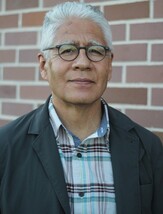
Read Part One
The Beast of Cabo Rojo
Part Two
The boat, operated by a young college intern, took him to a battered dock attached to a small “r” shaped island. He was met at the dock by a trim, studious-looking young man who introduced himself as Andres Benitez; a primatologist.
“Do you mind if we stay out here by the dock?” Benitez asked. “We have several scientists involved in a number of very sensitive studies right now, and it would help if we kept the human presence down to a minimum.”
Jones nodded as he produced his notepad and pen. “Sure, no problem,” he said. “This shouldn’t take long.”
“Great,” Benitez responded enthusiastically. “What little we had in the way of shelter or meeting space was blown out to sea by the hurricane. We have no permanent structures on the island since no one is allowed to stay overnight anyway.”
“And I imagine that’s also to minimize the human footprint here,” Jones said, while writing in his notepad.
“Exactly,” Benitez agreed. “Now, how may I help you officer?”
“Detective, actually,” Jones corrected. “I’m looking for a chimpanzee that I was told was donated to your facility. This was before the hurricane struck.”
“Oh yes, I remember that entire episode quite clearly,” Benitez said, a note of sadness creeping into his voice. “At the time we considered it to be a rescue type of thing.”
“What do you mean?”
“Well the zoo had literally run out of money, and so was rapidly trying to divest itself of all of its large animals,” Benitez explained. “The last of these was a very large adult chimpanzee that they had acquired as a donation from a lab.”
“So then you guys decided to take the chimpanzee in,” Jones said.
Benitez nodded. “It was a mistake,” he admitted. “The poor ape was severely traumatized and, even though you couldn’t initially tell by looking at him, his overall health had to have been compromised by all of the chemicals and drugs that were coursing through his bloodstream.”
“So where is the chimp now?” Jones asked.
Benitez sighed. “Look, you have to understand,” he said emphatically. “No other facility would take him in. We were hoping to temporarily house him in one of the large steel cages that some of our scientists eat their meals in while observing the monkeys, but he was too big and powerful. He destroyed two of the cages before we were able to sedate him. And even sedation was tricky since he didn’t react as expected, again, probably due to all of the chemicals already in his system.”
“Just how did he react?”
“The normal dose of sedative for an ape his size had no effect on him rather than causing him to become increasingly agitated and belligerent. The doses had to be increased to dangerous levels just to put him out.”
“So where’s the chimpanzee now?” Jones asked again.
“Wait, let me finish,” Benitez said. “The longer the chimpanzee stayed here, the angrier it became, with the vocalizations of the island’s resident monkeys seeming to irritate it. In turn its own screeches and its pounding on the floor and bars of the cages disturbed the monkeys to the point of ruining at least several months’ worth of scientific observation, entries, theories…
“I’m responsible for the 1,000 Rhesus Macaque monkeys that reside here, as well as for the students and scientists that study them.”
“Did the chimpanzee ever hurt any of the people here?” Jones asked. “Did it escape during or after the hurricane? Is it possible that it got out of its cage and swam back to Puerto Rico? Is that what you’re trying to hide here?”
“What? No!” Benitez insisted, before taking out his handkerchief and wiping his face. It had grown much warmer since their meeting started, and standing out in the open didn’t help things. “A chimpanzee’s muscle density would cause it to sink like a stone—it would have drowned.”
“So then where is it now?” Jones insisted.
Benitez sighed. “I gave it to a research lab back in Puerto Rico,” he stated dejectedly.
“I have no idea what happened to him after that, and I didn’t want to know.”
“Give me the name and address of that lab,” Jones insisted, writing it down in his notepad as quickly as Benitez recited it. His heart almost skipped a beat when Benitez told him that the lab was located in Cabo Rojo.
“A few more things,” Jones said still writing in his notepad. “Is a chimpanzee smart enough to erase its footprints from a crime scene? Can it be taught to do that? Can it be kept as a pet and taught to kill people?”
Benitez looked confused for a moment, but then answered the questions. “A chimpanzee is indeed smart enough to cover its tracks, but to answer your second question as well, it wouldn’t normally see the benefits of doing something like that, and so it would have to be trained to do so.”
“And the last question?”
“This reminds me of an Edgar Allen Poe story that I once read in high school, ‘The Murders in the Rue Morgue,’ where an ape that was being kept as a pet commits murder…”
“So it is possible?” Jones pressed.
“Well, that was a work of fiction of course, but chimpanzees are often kept as pets,” Benitez said. “Unfortunately their owners soon find out that once a chimpanzee reaches adulthood, it becomes too unpredictable and dangerous to be safely kept as a pet any longer. As far as being taught to kill, I honestly don’t know. But a full-grown chimpanzee, and in my opinion especially the chimpanzee in question, is physically more than capable of killing a human being with its bare hands.”
After the short return trip from Monkey Island to the main island of Puerto Rico, Jones received a call from his captain: another headless body had been found in Cabo Rojo.
As soon as Jones pulled up to the crime scene, he was met there by a nearly frantic Sergeant Acosta.
“You seem to be spending more time working homicide scenes than recovering stolen vehicles,” Jones called out as he exited his vehicle.
Sergeant Acosta nodded and wiped his sweaty face with a handkerchief. “Yes,” he acknowledged. “The hurricane has pushed many of us out of our comfort zones.”
Jones clapped the Sergeant on his broad back good-naturedly. “Very true,” he agreed.
Acosta led him to the part of the forest that faced the grounds of the Los Morillos lighthouse; known simply as El Faro to the locals. The usually well-kept grounds of the lighthouse were littered with debris left behind by the hurricane. Volunteers armed with little more than hand tools toiled under the hot sun in an effort to clear away the mess. It was one of these volunteers, Sergeant Acosta explained, that had found the body partially hidden under an unruly pile of twigs and branches.
“It is like the others,” Acosta pointed out once they’d reached the body. “It has no head.”
Jones nodded absently as he searched the area near the body for clues—especially footprints.
“Perhaps the gargoyle has taken it?” Sergeant Acosta asked nervously.
Jones sighed. “If you want to remain a part of this investigation, Sergeant, then I suggest that you stop the superstitious nonsense.”
“Yes sir,” the Sergeant answered dejectedly.
Jones pointed at the area around the body. “No clear footprints,” he said. “Just like at the other crime scene, it looks as if they’ve been brushed away.”
Sergeant Acosta took a quick glance around and nodded in agreement.
“Apparently an ape would have no reason to do that on its own,” Jones added quietly as if in afterthought.
“Huh? I didn’t hear you, detective,” Acosta said.
“Never mind,” Jones said. “Arrange for this body to join the others in the refrigerator truck, and see if you can get Dr. Rivera to perform the autopsy.”
“Yes, sir,” the Sergeant said as Jones started walking back to his car. “Where can I say you’ll be if anyone asks?”
“Tell them that I’m with my wife and kids,” Jones said before driving away.
At the hotel where his family had taken refuge after the hurricane, Detective Jones sat on the room’s king-sized bed and used the remote to mute the sound on the television.
“The boys are finally asleep,” Jones’ wife Marisol said as she entered the room. “I wish I had half their energy!”
They laughed quietly as she climbed onto the bed and sat next to him. Jones rubbed her back, and she wiggled her toes in pleasure.
“How’s the house holding up?” She asked.
“About the same,” Jones answered. “I just had to take a break from that hammock!”
Marisol laughed again, “I can imagine,” she said. “Well at least tonight you can get a decent night’s sleep.”
Jones straightened up and put his hands in his lap. “I’m not sure I can sleep anyway,” he said. “This case I’m working on doesn’t make any sense.”
“You mean the gargoyle?” Marisol asked playfully.
Jones groaned and rolled his eyes, and then he sighed. “I hate to say this,” he said. “But I’m starting to wonder whether it is a gargoyle after all.”
Marisol laughed lightly, her eyes sparkling in the dim light. “I was only kidding, Perfe,” she said, using his nickname.
Jones sighed again. “I know,” he said. Then he told her about his search for an elusive chimpanzee that may also be a killer.
“I was so sure about the chimpanzee,” Jones said. “But at both crime scenes it looked like someone had deliberately tried to cover up the footprints there, and I was told that chimpanzees wouldn’t normally do anything like that, they would have to be taught to do that.”
Marisol bit her bottom lip as she processed the information that her husband had just told her. “Is it possible that someone is helping the chimpanzee hide its tracks?”
“I considered that,” Jones said. “But apparently this particular chimpanzee is too aggressive and dangerous to be led around on a leash or trained to do anything.”
Jones rubbed his suddenly cold hands together, “And I kept getting this feeling that I was being watched.”
Marisol placed her hand over both of his. “Like you told me happened to you sometimes during the war?”
Jones shook his head. “No, no. Not like that exactly,” he explained. “It wasn’t just a feeling of being watched—I could feel a terrible anger coming from whoever was watching me from the shadows. I can barely explain it. Actually the feeling may have been closer to hate than anger…it may have even been evil. Look, the hairs on my arms are standing straight up while I’m thinking about it.”
Marisol reached out and gently smoothed the hairs on one of his arms. “You’re tired, Perfe,” she said. “Looking after the house, sleeping on a hammock, this crazy case…you’ll figure it all out soon, you always do. All you need now is a good night’s sleep.”
Then, what started out as a goodnight kiss, ended in sweet lovemaking, and afterward he did have a good night’s sleep.
In the morning, Jones found himself on the road to Cabo Rojo before the sun had fully risen. He drove with the windows open, the air redolent with the astringent scent of the sea. In the distance roosters crowed while the distinct two-tone call of the Coqui tree frogs competed with the trilling singsong of the birds just waking from their nocturnal slumbers.
The drive down to Cabo Rojo was relatively uneventful. Jones nodded appreciatively at the road crews and volunteers still removing debris from the roads or directing traffic around the detours.
The drive through the forest to get to where the lab was located was a different matter altogether. The paved road soon disappeared, replaced by a pitted and rutted disaster that in some places was choked with near impenetrable barriers of hurricane engendered junk and debris. Jones had to backtrack and/or go off-road several times before coming to a well-maintained turn-off that led to a tall chain-link fence topped with razor wire.
Jones continued along the road running alongside the fence until he reached a small, circular clearing and a gate with a callbox mounted next to it.
Jones climbed stiffly from the confines of his vehicle and stretched the kinks out of his back and joints. As he was stretching, he looked around and took stock of his surroundings. The clearing and the entire area as far as his eyes could see, was surrounded by thick forest. Whereas earlier Jones had been able to smell the sea and had been serenaded by birds and frogs, the deep, jungle-like foliage that now surrounded him seemed to have the effect of dampening sound and blocking whatever breeze could have refreshed him, so that it seemed that in this place the day suddenly grew hot, humid and unnaturally quiet.
Jones then peered through the fence at the strange dome-like buildings beyond. The sight was surreal—three large dome-shaped buildings connected by what appeared to be external passageways. At one end of the compound stood what looked like a huge microwave antenna, pointed accusingly at the perfectly azure sky. If it wasn’t for the perfectly normal looking parking lot, the whole thing would have looked like something out of a science-fiction movie.
Perfecto Jones pressed the sole button on the callbox, and after a moment, a woman’s voice answered.
“Lamboi Labs.”
Jones identified himself and then added, “I believe someone from my office may have called you last night to let you know that I was coming?”
Several more moments passed, and just when Jones was about to press the button again, the voice returned.
“Yes, and I remember telling that person that the professor is not accepting visitors at the moment.”
“This isn’t a ‘visit’, Jones insisted. “And if the professor prefers, I can go back and get a warrant that would then involve more officers and which would also then be much more intrusive, I assure you.”
After a few more moments, the voice came through again. “Please drive up to the main building.”
This last direction was followed by a loud click, and a whirr as the gate retracted. Jones climbed back into his car, drove past the gate, and into the parking lot, where he parked next to the only other vehicle there.
As he exited his car again, Jones was met by a sharply dressed woman carrying a clipboard. “Detective Jones,” he introduced himself with his hand outstretched.
The woman, Jones assumed that she was the same person that he’d spoken with through the callbox, looked at his hand and avoided shaking it by gripping her clipboard even tighter. “Follow me,” she said curtly before turning around and disappearing through the doorway of the building.
Jones lowered his hand, shrugged, and followed her inside.
The inside of the building was much cooler than Jones expected, but it wasn’t uncomfortable. As the woman with the clipboard led him towards a semi-circular receptionist’s desk, Jones looked around at the ultra-modern, almost futuristic, décor.
“How long has this place been here?” Jones asked once they’d stopped at the receptionist’s desk.
The woman that had led him into the building took a seat behind the desk, and placed her clipboard carefully on top of it before answering. “The main building, this one that we’re in, was built six years ago. The other two, and the rest of the compound, were added later on, so the entire complex is relatively new.”
Jones gave a low whistle. “Six years? I never knew that this place existed until recently.”
“The professor values his privacy.”
“I guess so,” Jones said as he pulled out his notepad and referred to the notes he’d taken down during his research earlier. “And that would be Dr. Gustavo Lamboi?”
“Yes. He owns and runs this facility.”
“I see,” Jones said, tapping his pen on the notepad. “And who are you?”
“My name is Anna Vasquez,” she answered. “I’m Professor Lamboi’s personal assistant.”
Jones took a quick look around, “I’d like to speak to Dr. Lamboi,” he said.
“He knows that you’re waiting,” Vasquez said. “He will be joining us momentarily.”
Jones nodded.
“And he prefers to go by the title of professor,” she added.
“Professor of what?” Jones asked.
“Before his accident, he was a professor of spinal trauma and surgery at the medical college,” she answered. “His research led the way to making great gains in the areas of robotic and laser surgeries, not to mention his groundbreaking work in the areas of stem cell implementation, immunology, and micro-surgery.”
Jones stopped writing in his notepad and looked at her. “You really admire the, uh, professor,” he said.
A blush stole its way quickly over face and neck. “Of course I admire him,” Anna said. “He is a great man; a genius! I was his student at the college, and that’s where he first hired me as his research assistant. Once he received the grant to build this facility, he brought me onboard as his personal assistant.”
“That’s a lot of assisting,” Jones said, shutting his notepad and trying to keep the sarcasm out of his voice.
Anna Vasquez skewered him with a sharp glance. “What are you implying?” She asked sharply.
“Nothing,” he said casually. “Nothing at all. I, uh, did notice the unique shape of the buildings here…”
“The dome shape of the buildings make them virtually hurricane-proof,” Vasquez explained. “The high winds have nothing to grab onto, and so ensure that damage is kept at a minimum. Each building and exterior passageway also utilizes a mostly gravity-based drainage system that automatically funnels potential flood-water away from the structures and out into the nearby mangroves…”
“Mangroves?”
“Mangrove trees are notorious for their ability to tolerate flooding and even the occasional saturation of seawater, Mr. Jones.”
Surprised, Jones abruptly turned around to see who had just spoken to him.
“I am Professor Lamboi, owner and administrator of this facility.”
Keep a look out for the conclusion in Part III.
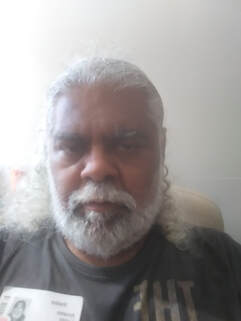
Submit to the Second Annual Extra-Fiction Contest, click here for details.
A killer from the grave
By Tommy Villalobos
Part 1
“Hello,” she said, while, at the same time, tapping on the door jamb of my office, the door being open. It was 2 pm. It was September. It was hot. L.A. hot. East L.A. caliente.
My office was located on the second floor of a timeworn building on First and Boyle. Someone said it was built in1889. Creaky floors agreed. I had a corner office in the round corner of the building. Could I have a corner office in a round part of a building? I’m not a philosopher and flunked Geometry in high school. So, I can’t say.
Getting back, when I say “She,” I mean SHE. Before me stood a gorgeous female I suspected of being an angel who had made a wrong turn in heaven and ended up in East Los Angeles, circa 1940.
I was still staring in wonderment, when she said “Hello” again.
“How are you?” I asked the rhetorical question knowing there was only one answer, “Fine.”
“Awful,” she said, disagreeing.
I asked her for confirmation, allowing for temporary mood swings.
“Why not?”
“I have a serious problem.”
“Come in, I solve serious problems,” I said. “I’m a private detective.”
“I know, I saw your sign downstairs. ‘Tony R., Private Detective.’ What does the ‘R’ stand for?”
“Resolvo,” I said quickly, displaying my quick reflexes. I had been in business three weeks, and I was grasping at what would be my first client.
She floated toward my desk. Her dress whispered, her hips sang. Her lips were a red torch of invitation while her hair flowed down in a cascade of raven splendor from under her white, wide-brimmed hat. The sound of her high heels on the wood flooring resonated in my head, telling me that they were holding a woman who, at will, could make any man with half a heartbeat whimper.
She stood before my desk and looked at me as if she were the Queen of Sheba and I was a busboy at one of her lesser banquets, set to tell me to jump this way or that way. With tongue shooting out like a lizard waiting to snatch a passing fly, I hung on her next words like that busboy.
“Aren’t you supposed to ask me to sit or something?”
I saw that I had no chair in front of my desk. I looked at my bare office and saw a wooden folding chair in the corner, on loan from my mother. I scrambled around the desk and retrieved it, unfolding it next to her, dust flying. I wiped the chair with the sleeve of my wrinkled white dress shirt.
“Sit,” I said, pointing to the chair, making sure she knew where.
She responded like a well-trained terrier and sat. I returned to my chair.
“What brings you to my office?” I said.
She looked at me as if I had no notion of the concept, “office.” Then she composed herself.
“A certain someone is trying to kill me.”
Her beautiful brown eyes were now widened for emphasis. Her full, red lips were pursed, joined in the emphasis. Her face was not smiling. This was no chiste. This was serious. I put on my most professional face and used my most elevated voice.
“Who?”
“Joe Fluiz,” she said casually as if he was a mutual friend.
“Should I know him?”
“No. He’s dead. Been that way for a while.”
I put chin to chest. I was confused. Even dubious. Then, again, she dressed well and maybe could pay well. I was getting hungry for decent comida. Another question from me to her was in order.
“How long has he been dead?”
“About a hundred and sixty years.”
I stared at her. Then I stared at the dirty window. Then I stared at her. Then I stared at the far wall. Then the worn wooden floor. Then landed on her again.
“Are you sure?”
“Sure as shootin’.”
“Why are you so sure? I mean, did he come to your door and tell you politely that he was no longer with us?”
“Better than that. The person whispered it into my ear. It was at night. I was in bed and I heard breathing in the dark. Actually, it was more like wheezing. I sat up and that is when the whispers came.”
I repeated my staring routine from above with one alteration. I additionally stared at my phone. I might have to call someone to pick up her up, as dazzling as her looks were, and have her rushed to a proper lugar. One for crazy people. I coughed the insincere but polite cough then sought clarification.
“Exactly what did this dead person whisper to you?”
“That I was going to die.”
“Just came out and told you?”
“Yes. He was very direct.”
“Anything else?”
“He said that he had been dead for a hundred and sixty years, and was going to kill me. He then said that I didn’t have all that much time.”
“How much time did he give you?”
“Didn’t say. Just said I didn’t have that much time. Your place is run down,” she added as an afterthought.
“Didn’t you ask him to be more specific?”
“No.”
“You didn’t ask him why he held this grudge against you all this time?”
“Didn’t have a chance. He disappeared.”
“In a puff of smoke?”
“How’d you know? Has he visited you?”
I then let out a shallow laugh to lighten the mood.
“No.”
At this point in our relationship, I wanted to tell her she was a loony, a genuine loca, but my professionalism kept me in check. I again studied her beauty. It was still dazzling. I now hoped that this was a clever joke. You know, a nutty friend of mine who thought this would be a fun thing to do, send a doll who was off her cebolla to a rookie private detective and see him get confused and think of another line of work, like being a lechero.
I was waiting for her punchline, or maybe that friend to come charging in the room, pointing at me, guffawing all the while. Then I considered. Someone who was talking like her usually had a frazzled appearance topped by pelo shooting in all directions while sitting on a park bench speaking to the wind. She did not fit the mold.
She got up and now she stared, her stare focused on me.
“I was set to pay you good money for a little work. But you seem to question my circumstances.” I wanted to tell her what I was questioning was her sanity. She then stared around my bare office.
Being a professional detective, I understood her drift. She could improve my lot. A lot.
To be continued
| Tommy Villalobos, who lives near Sacramento, California, has several e-books in virtual print, Lipstick con Chorizo, the story we first serialized ala Carlos Dickens in Somos en escrito a few years ago, Love Thy Neighbor, Oro and Elo were Buddies, and Unos Marranos Plus Una Vibora Equals Romance. His droll Chicanesque world is filled with larger than life barrio dwellers, as in this first part of a new serial thriller in the making. |
Archives
July 2024
June 2024
April 2024
March 2024
November 2023
August 2023
July 2023
June 2023
May 2023
April 2023
February 2023
January 2023
December 2022
November 2022
September 2022
August 2022
July 2022
June 2022
May 2022
April 2022
March 2022
February 2022
December 2021
November 2021
September 2021
August 2021
July 2021
June 2021
May 2021
April 2021
December 2020
September 2020
July 2020
November 2019
September 2019
July 2019
June 2019
May 2019
April 2019
March 2019
January 2019
December 2018
November 2018
October 2018
September 2018
August 2018
June 2018
May 2018
April 2018
March 2018
February 2018
January 2018
February 2010
Categories
All
Archive
Aztec
Aztlan
Barrio
Bilingualism
Borderlands
Boricua / Puerto Rican
Brujas
California
Chicanismo
Chicano/a/x
ChupaCabra
Colombian
Colonialism
Contest
Contest Winners
Crime
Cuba
Cuban American
Cuento
Cultura
Culture
Curanderismo
Death
Detective Novel
Día De Muertos
Dominican
Ebooks
El Salvador
Español
Español & English
Excerpt
Extra Fiction
Extra Fiction Contest
Fable
Family
Fantasy
Farmworkers
Fiction
First Publication
Flash Fiction
Genre
Guatemalan American
Hispano
Historical Fiction
History
Horror
Human Rights
Humor
Immigration
Indigenous
Inglespañol
Joaquin Murrieta
La Frontera
La Llorona
Latino Scifi
Los Angeles
Magical Realism
Mature
Mexican American
Mexico
Migration
Music
Mystery
Mythology
New Mexico
New Mexico History
Nicaraguan American
Novel
Novel In Progress
Novella
Penitentes
Peruvian American
Pets
Puerto Rico
Racism
Religion
Review
Romance
Romantico
Scifi
Sci Fi
Serial
Short Story
Southwest
Tainofuturism
Texas
Tommy Villalobos
Trauma
Women
Writing
Young Writers
Zoot Suits
Donate and Make Literature Happen
is published by the Somos En Escrito Literary Foundation,
a 501 (c) (3) non-profit, tax-exempt corporation. EIN 81-3162209


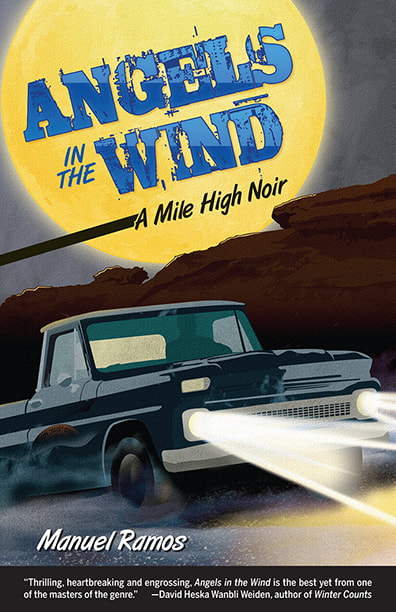
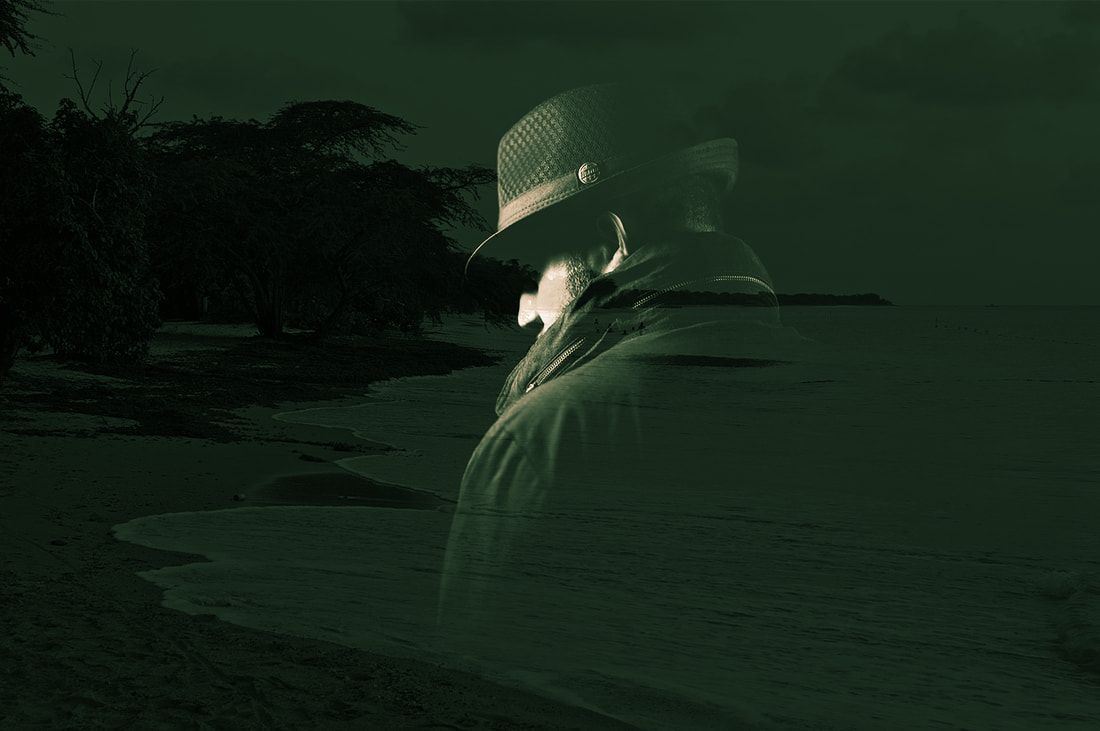
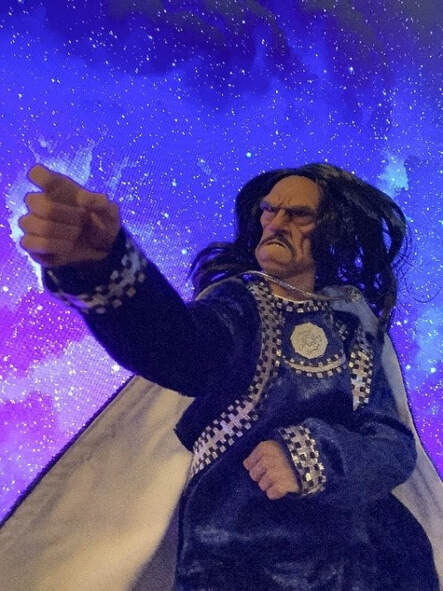

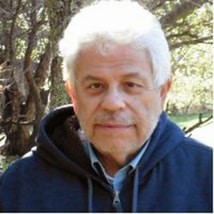
 RSS Feed
RSS Feed